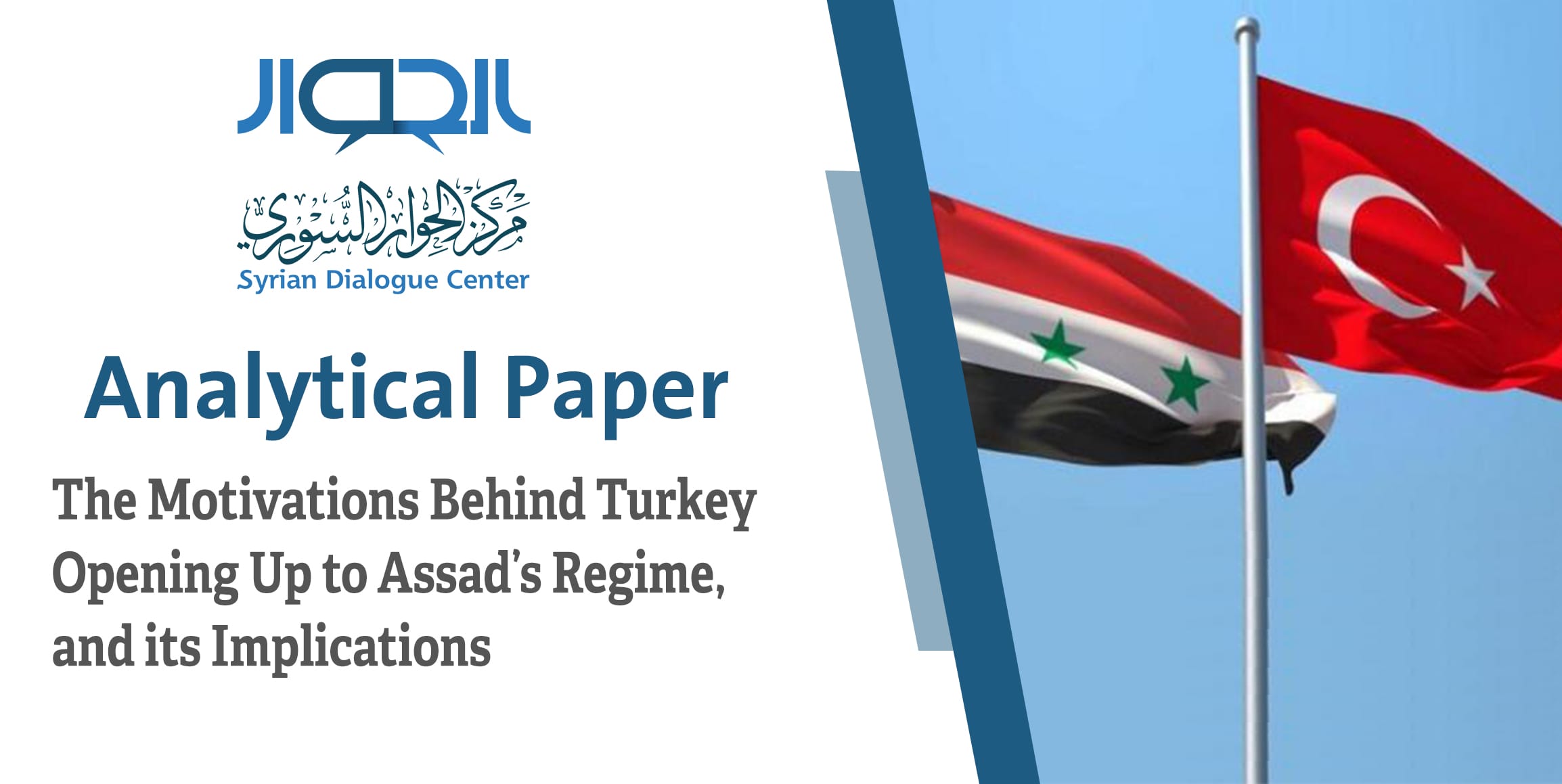
The Motivations Behind Turkey Opening Up to Assad’s Regime, and its Implications
Analytical paper produced by the consensus and shared identity unit
Summary:
Using the descriptive analytical methodology this paper discusses the motivations driving Ankara’s decision to open up to Assad’s regime, as well as the possible scenarios resulting from this decision and ways to deal with them.
The first section presents the previous regional efforts at normalisation of relations with Assad’s regime. It clearly shows that in the Arab context specifically each nation had its own motivations for normalisation, even though the opposition and revolutionary factions had a secondary role in this process due their failure to market itself as a real alternative for Assad’s regime. However, with regards to where these efforts led to, it seems that most of these nations have failed to secure any real gains to this moment. The normalisation process comes as a regional indicator showing a strategic advantage and shift towards the anti “Arab Spring” powers, powers that reject the existence of a political system based on popular democratic decisions, but besides this point the change is also tied to economic and security interests.
In the second section we look at the reasons that drove Turkey to change its position towards Assad’s regime, the first being the increasing distance and animosity between Turkey and the western powers, especially given that the US is ignoring Turkey’s national security demands with continuous support to the “QSD” project. And on a regional level, Turkey’s return to its old “Zero Problems” policy driven by the ruling party’s wish to focus on the next elections and bypassing the economic difficulties, not to mention aiming for a breakthrough on the issue of the return of Syrian refugees.
The third chapter discusses the three possible courses of action possible for Turkey, while predicting one of them. The option Turkey will probably go through with is an increase in security coordination instead of full or partial normalisation, due to big disagreement between the two sides on current conflicts that would be a barrier to political normalisation of relations. As well as both sides benefiting from increased coordination in the security field. This on one side gives Turkey a margin to test Assad’s regime’s abilities and intentions as well as removing the normalisation option from the Turkish opposition’s hand. On the other hand, Assad’s regime gains some concessions from the Turkish side, for example a recognition of legitimacy from the Turkey and opening up the economies to each other through the indirect passages going through “freed areas” towards the regime’s control zones.
Finally, the fourth chapter discusses the tools and ways the Syrian opposition and revolutionary factions can utilise to combat this normalisation. The paper recommends relying on popular movements and efforts that should send a clear and direct message to the international community. Firstly, that the continuation of Assad’s regime results in more migration, more security threats and increased support for terrorist organisations, not to mention more drug trade and the spread of criminal organisations. And secondly, demanding a real safe environment according to various international resolutions, as well as showing the real misery and terror the returning Syrian refugees are going through in Assad’s areas of control.
The paper also recommended relying on the rights aspect of the issue, due to it being effective in preventing normalisation, with the importance of an active participation from civil society for its role in coordinating popular efforts and marketing them to the international community.
To read the full research paper (Arabic)
مؤسسة بحثية سورية تسعى إلى الإسهام في بناء الرؤى والمعارف بما يساعد السوريين على إنضاج حلول عملية لمواجهة التحديات الوطنية المشتركة وتحقيق التنمية المستدامة





